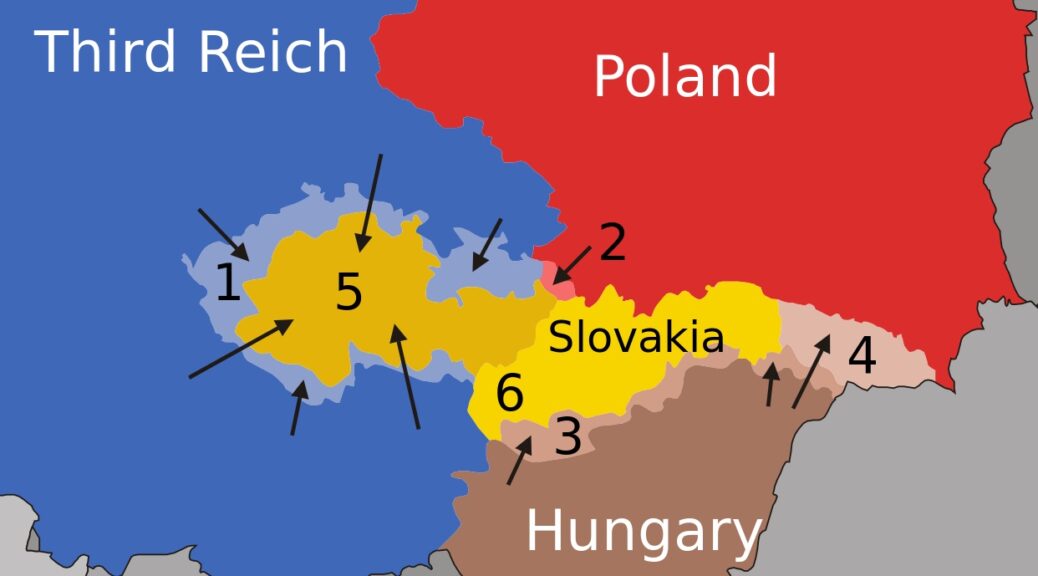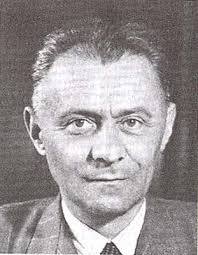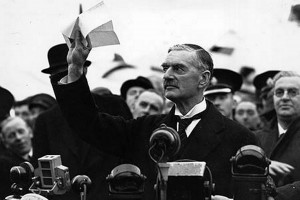
Churchill, Ripka, Appeasement and the Czech Debacle
Who was Hubert Ripka, and what did he say about Appeasement? Did Ripka prove that Churchill waffled over Czech liberty? No. To be sure, we must look at the complete record,
Excerpted from “Did Churchill Waffle in 1938?: The Tale of Hubert Ripka,” my essay for the Hillsdale College Churchill Project. To read the original article with endnotes, click here. To subscribe to weekly articles from the Churchill Project, click here, scroll to bottom, and fill in your email in the box entitled “Stay in touch with us.” Your email address is never given out and remains a riddle wrapped in a mystery inside an enigma.
When Appeasement serves…
Writing in Engelsberg Ideas on November 28th, Patrick Porter makes a perfectly legitimate point: “Painting the wartime premier only as an heroic anti-appeaser overlooks the many diplomatic ploys he used to disarm a dangerous world.” He correctly quotes Churchill’s 1950 remark:
Appeasement from weakness and fear is alike futile and fatal. Appeasement from strength is magnanimous and noble and might be the surest and perhaps the only path to world peace.
Mr. Porter says Churchill’s wisdom is not evenly portrayed nowadays, in debates such as the question over aid to Ukraine. Not all arguments, he writes, can be framed in terms of “heroic Churchills versus feckless appeasers, in the face of Adolf Hitlers.” That is true.
But Mr. Porter bolsters his argument with an anecdote involving the 1938 Czechoslovakia crisis—a partial account which skews our understanding of Churchill’s views over when to compromise and when to stand firm.
We deal here only with Hubert Ripka and his story. Readers unfamiliar with the Czech and Munich Crisis should consult good books on the Appeasement years, or other links provided here.
Ripka and Churchill

Hubert Ripka (1895-1958) was a Czech lecturer and journalist, owner of the Prague newspaper Lidove Noviny. He was a close friend of Czechoslovakia’s founder Tomáš Masaryk and President Edvard Beneš. Early aware of Hitler’s designs on his country, Ripka labored to spread the alarm. In 1939-40 he would flee the Nazis in Prague and then Paris, becoming Deputy Foreign Minister of the Czech exile government in London. Returning home in 1945, he soon had to flee again, from the Communists, in 1948.
Ripka was introduced to the Churchills by Shiela [sic] Grant Duff, a distant cousin of Clementine’s, in the mid-1930s. Grant Duff implored Churchill to stand with the Czechs. “I am convinced,” she declared, “that only a stand on our part can overcome it. Czechoslovakia is, for the moment, almost entirely dependent on us.”
What Churchill told Ripka
On 13 May 1938, Churchill, Professor Lindemann and Archibald Sinclair met with the Sudeten German leader Konrad Henlein. Suave and affable, Henlein urged Churchill to support the “reasonable” demands of the Sudeten-Deutsch. Henlein insisted he was a loyal Czech who simply wanted Home Rule, such as WSC had helped engineer in Ireland.
A note on this meeting, which Churchill forwarded to Prime Minister Chamberlain, was also sent to Czech Ambassador Jan Masaryk, “who professed himself contented with a settlement on these lines.” Chamberlain also agreed. Churchill was hopeful: “I have good reason to believe that the kind of plans which Herr Henlein described when he was over here would not be unacceptable to the Government of Czechoslovakia.”
But Churchill was misled. In fact, Henlein had promised Hitler he would “make demands that cannot be satisfied.” If one was accepted, he would make another. And at the end of May, Hitler ordered an invasion of Czechoslovakia to begin no later than October 1st.
Mr. Porter would have us believe that Churchill was pro-Appeasement over Czechoslovakia, but he does not quote WSC directly, and his evidence is scanty. Churchill, he said, “supported maximal concessions”….
In June that year, as Hitler and his irredentist proxies in the Sudetenland agitated for reunion with the Reich, Churchill privately told Hubert Ripka, confidant of Czech president Edvard Beneš, that if he were in office, he would likely follow Chamberlain’s policy of seeking peaceful compromise.
This is accurate as far as it goes, but it doesn’t go far enough.
Hubert Ripka’s account
The historian David Irving was broadly criticized for his opinions on Churchill and Hitler. Irving often quoted singular sources, especially in languages other than English. (My favorite was always “Mrs. Goering to the author.”) A reader must judge whether a source is valid. But Porter should have cited Irving, since the following could only have come from him.
On 22 June 1938, Churchill and his colleagues met with Hubert Ripka at the Savoy. Irving produces Ripka’s report from Czech diplomatic papers—the only English-language source I could find for Porter’s conclusion that Churchill was pro-appeasement:
[Churchill] talked of the good impression Henlein had made, and of how he seemed to be keeping his engagements. Ripka choked, and pointed to Henlein’s less roseate interviews with senior Daily Mail journalist G. Ward Price, and Karl Frank’s conversations with British reporters in Prague.
At this Churchill lost his composure: Prague must come to terms with Henlein, he said; it would be an error to rely too “carelessly” on British aid. “We spoke sharply and threateningly with Henlein, because one cannot speak otherwise with a Boche if one wishes to make an impression; but with you [Czechs] we can speak in another language, meaning with complete openness, which you deserve, so that you do not become slaves to an imprudent trust in English assistance. Every one of us leading politicians,” he lectured Ripka, “has to ask ourselves whether we have the right, whether we can in all conscience force our country into war—whether we can permit London to be destroyed, and our Empire to be shaken once more.” He added with rare candour, “I cannot say that I would not act similarly to Mr. Chamberlain, if I had the responsibility as head of government.”
Porter’s reference ends here. He fails to include the rest of the Ripka-Churchill interview. In fairness to Churchill, it needs to be cited.
The rest of the story
The balance of Ripka’s report undermines Porter’s argument that Churchill counseled appeasement in the Czech crisis. When Ripka said the Czechs would defend themselves against any invasion….
Tears shot into Winston’s eyes. “Masaryk was right,” he cried, referring to Jan’s father Tomáš. “Death is better than slavery.” If war did come, he continued, mopping his eyes, this time they must wage it against the Boche so thoroughly that he wouldn’t recover for generations. “We’ll smash them to smithereens,” he snarled, “so they don’t trouble us for a century or more.”
After a while he spoke of “Herr Beans,” as he pronounced the name of Czechoslovakia’s president, Edvard Beneš. Churchill called him one of the greatest men of our epoch, and praised the resolution of the Czechs to fight for freedom with such vehemence that he began to cry all over again.

Over the summer, the Sudeten crisis deepened. The Czech government rejected autonomy; Henlein’s Nazis increased acts of violence; Hitler’s demands became strident. By September, abandoned by the British and French, the Czechs were unwilling to fight alone. There was no split of opinion in Britain. Returning with the Munich agreement, Chamberlain was feted as a hero.
Did Churchill waffle?
Porter’s reference to what WSC told Ripka, though without attribution, surely comes from Irving. It appears nowhere else among in our 80-million-word Churchill digital canon. Irving’s source, in turn, was Czech diplomatic papers, which are not in our scans. My colleague Colin Brown, at the Hillsdale College Churchill Project, ran down the originals, finding that Irving reported Ripka accurately.
Is Ripka’s report damning? Evidently not.
In June 1938, three months before Hitler’s demands reached crisis-level, Churchill was correctly warning Ripka there was no guarantee Britain and France would fight alongside the Czechs. Having accepted Henlein’s assurances, he still hoped for peaceful compromise. Henlein had been careful to adopt a conciliatory attitude when he talked to Churchill. Assuming Churchill’s words are what he said—and who knows, since Ripka is the only reporter?—they sound more like caution than desertion. Churchill was then still trying to be supportive of Chamberlain, hoping to buck him up if matters got worse. Which indeed they did.
All other documents and references suggest that Churchill supported Czech independence, even at the risk of war. He spoke out for this view despite warnings that France would not fight, and that absent France, Britain wouldn’t either. It is right to observe that in other crises Churchill sometimes counseled compromise. But not over Czechoslovakia in September 1938.






